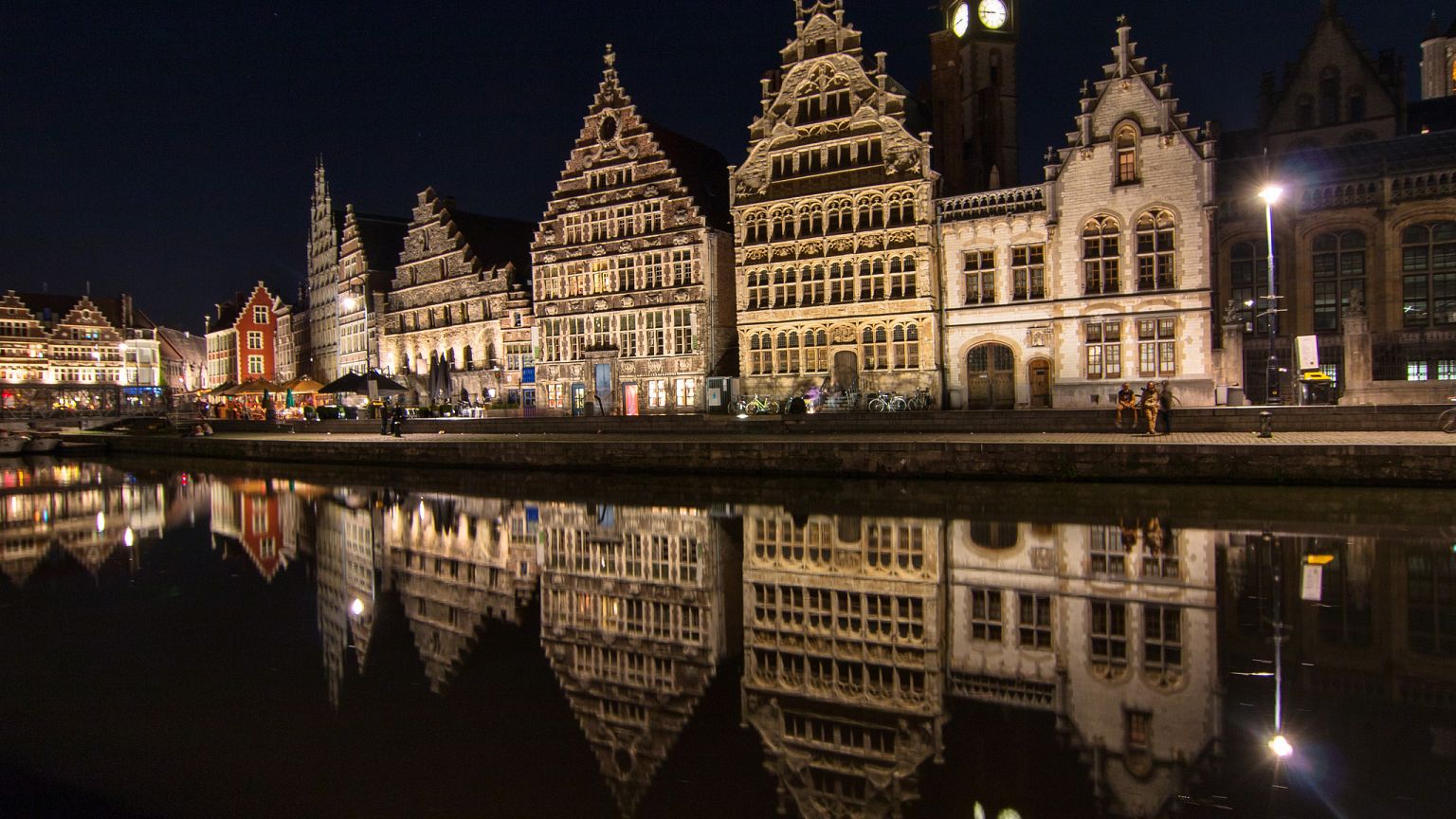Flemish separatists do not face the same conflicts as the Catalan independence movement.
European heads of state have been largely silent in the wake of Sunday’s independence referendum in Catalonia, with one prominent exception: Prime Minister Charles Michel, the French-speaking liberal politician who governs Belgium alongside the New Flemish Alliance (Nieuw-Vlaamse Alliantie, or N-VA), a Dutch-speaking nationalist party whose grand strategy is to separate the north region of Flanders from the Belgian state.
 ADVERTISEMENT
ADVERTISEMENT
 ADVERTISEMENT
ADVERTISEMENT
“Violence can never be the answer! We condemn all forms of violence and reaffirm our call for political dialogue #CatalanReferendum #Spain,” said Michel in a tweet written in English on the Sunday morning of the Catalonian referendums.
Only two years ago, Belgium’s Minister for Justice Jan Jambon, a member of the N-VA, warned that the Belgian government risked a crisis if it did not show support for the Catalan referendum and failed to respect its outcome.
But while opinion makers and political leaders in Belgium have kept a close eye on events in Spain, the Catalan spark has not lit a bonfire among independence supporters because the two movements have very different backgrounds and statuses.
Belgium, a country of 11 million people, is split into two distinct halves, Dutch-speaking Flanders and French-speaking Wallonia. The prosperous Flemish north holds historic animosity for its southern neighbor, the former heartlands of continental European coal and steel production.
The Belgian nation was effectively invented in 1830 by a group of French-speaking Walloons, who forbid the use of Dutch in political and administrative life, relegating native speakers to second-class status in the country for nearly one hundred years.
However, fortunes shifted to the north after deindustrialization in the 1960s emptied the mines of Wallonia and turned the region into one of Western Europe’s poorest.
The Belgian government was ever since transformed, as state reforms designed to protect the rights of Belgium’s distinct linguistic communities eventually led to the creation of separate governments and parliaments for Flanders, Wallonia, and the bilingual capital-region of Brussels.
Today, the most powerful political party in the country is the N-VA, a centre-right nationalist party whose manifesto explicitly calls for Flanders to separate from Belgium and become a sovereign member state of the European Union.
Together with Vlaams Belang (Dutch for Flemish Interest), a Flemish political party farther to the right of the N-VA, Flemish separatist parties gain around 40% of all votes in the region of 6.5 million people.
However, unlike its sister movements in Ireland and Catalonia, Flemish separatism traditionally worked with the institutions of the state, as progressive reforms have seen the Flemish successfully gain more and more autonomy over their own lives.
Political scientists have noted that Flemish nationalists are exceptional for separatists in Europe insofar as Flemings are the majority in Belgian society.
“It’s not 1830 anymore. You simply can’t pretend that the Flemish are an oppressed minority and don’t have sufficient self-government in Belgium. In this sense, Flemish separatism is matter of belief, more so than a reaction to objective factors,” said Koen Lemmens, associate professor at the Faculty of Law of the Katholieke Universiteit Leuven, a Flemish university.
Furthermore, calls for independence have mitigated somewhat as the N-VA joined the federal government for the first time in 2014 and agreed to tone down its separatist rhetoric as it paradoxically took power in the institutions it swears to distance itself from.
“If separatism is about self-governance, then it only makes sense if you are governed by those whose policy you oppose. If, in the case of the N-VA, everyone is fairly happy with how they are running politics from Brussels, then what is the need for independence?”, said Lemmens.
Vlaams Belang has also shifted away from “Belgium bashing” and towards a xenophobic platform that criticizes the EU at large for its tolerant approach to migrants, with the support of its European allies like Germany’s AfD and the Netherlands PVV.
Still, many Flemish leaders have honed in on the referendum as a bellwether for their own prospects to become an independent state in the European Union, as evidenced by the raising of a Catalan flag at N-VA’s headquarters in Brussels last weekend.
Meanwhile, upcoming elections in 2019 mean that the question of Flemish independence will inevitably come back on the table, especially as the N-VA will have to reply to skeptical pro-separatists voters who voted for the separatist party three years ago.
“If the Flemish nationalists could obtain a majority in the Flemish parliament — and they’ve come very close in the past years to doing so, and could do so again in 2019 — what would happen if they proclaimed the region’s independence?,” said Bart Maddens, a Flemish political scientist who was invited by the Catalan government to observe Sunday’s referendum.
“What happens here in Catalonia will set an important precedent, not only for Flanders, but for all regions that want to declare independence and attempt to redraw the borders of Western Europe.”
by Alexander Saeedy
Photo: Gent waterfront by Martin de Lusenet CC2.0














